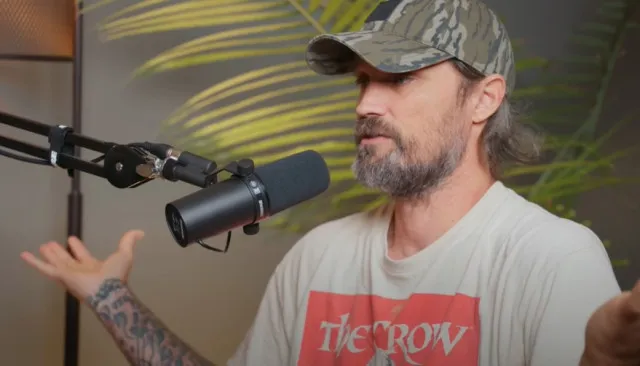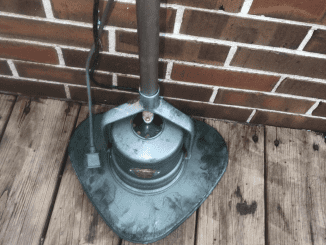A recent story has captured the public’s attention and sparked a heated debate on personal responsibility, financial independence, and the roles of family support. Mark, a 46-year-old man, has faced significant backlash after openly admitting that he relies on his parents’ financial assistance because he believes he is “too good” for traditional employment. This confession has ignited discussions on social media and among financial experts about the expectations and realities of adult financial responsibilities.

Man relied on his parents’ money despite the age of 46. Image Credit: YouTube/Caleb Hammer
The Dream vs. Reality: Pursuing a Career as a Streamer
Mark’s journey into the precarious world of digital entertainment began when he left a stable $50,000-a-year job to pursue his passion for streaming on Twitch. Initially, his new career path seemed promising, with earnings up to $7,000 a month. However, the inconsistent nature of the job and the pressures associated with content creation led to him stepping back from the platform. Currently, he earns about $600 to $700 on a good week, which he admits is insufficient to cover his expenses without additional support.

Mark drives for Uber but earns too little to cover expenses so he relied on his parents’ money. Image Credit: YouTube/Caleb Hammer
Financial Dependency at 46
The crux of the controversy lies in Mark’s reliance on his elderly parents to make ends meet. This situation has raised questions about the sustainability of his lifestyle and the burden it places on his retired parents, who are dipping into their savings to support their adult son. Financial expert Caleb Hammer highlighted this issue during a review of Mark’s financial situation, criticizing Mark’s spending habits, particularly his frequent dining out, which Caleb described as excessive and financially imprudent.
Public Reaction and Criticism
The public reaction to Mark’s situation has been overwhelmingly negative, with many labeling him as lazy and entitled. Comments on social media reflect a mix of disappointment and frustration, with users criticizing both Mark’s decisions and his parents’ willingness to enable his lifestyle. This backlash underscores a broader societal expectation that individuals in their mid-forties should be self-sufficient, especially when they have had opportunities to secure stable employment.
The Role of Parental Support
The dilemma of parental support in adulthood is complex. While parents naturally wish to help their children succeed, there is a fine line between support and enablement. In Mark’s case, critics argue that his parents’ continued financial aid has prevented him from fully experiencing the consequences of his financial decisions, thus hindering his growth and maturity.

He left a stable job to chase his streaming dream. Image Credit: YouTube/Caleb Hammer
Expert Insights on Financial Independence
Financial experts often emphasize the importance of living within one’s means and building a sustainable career. For someone like Mark, who has explored various job opportunities, the key to financial independence may lie in finding a balance between passion and practicality. Experts suggest that reevaluating his career goals and perhaps returning to more traditional employment could provide more stability and lessen the financial burden on his parents.

Caleb was shocked that Mark spent much on fast food while relying on money from his parents. Image Credit: YouTube/Caleb Hammer
Conclusion: Lessons Learned from Mark’s Story
Mark’s story serves as a cautionary tale about the risks of forgoing stable employment for uncertain entrepreneurial pursuits without adequate planning or savings. It also highlights the challenges parents face in fostering independence while providing for their children. As society continues to grapple with these issues, stories like Mark’s are critical for sparking dialogue about the values of hard work, self-reliance, and the appropriate limits of parental support in adulthood. For those in similar situations, it may be time to reassess priorities and seek solutions that ensure long-term sustainability and independence.


